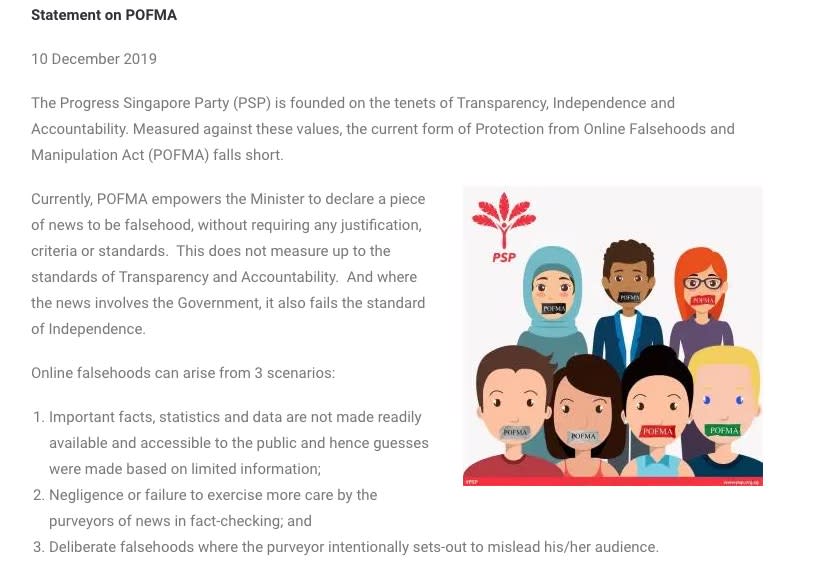PSP member Bowyer's rights to free speech 'unaffected' by fake news law: ministries

SINGAPORE — The Ministry of Communication and Information (MCI) and the Ministry of Law have defended their use of the anti-fake news law to correct a Facebook post by Progress Singapore Party (PSP) member Brad Bowyer.
In a joint statement on MCI’s Facebook page on Wednesday (11 December), they argued that using the Protection from Online Falsehoods and Manipulation Act (POFMA) to correct Bowyer’s post does not affect his rights to free speech, as his original post remains on Facebook and is still available for anyone to view.
The law was invoked for the first time on 25 November against Bowyer. The PSP member, who is a Singapore citizen, was issued a correction direction for a Facebook post about investments by GIC, Temasek and other government-linked companies. He complied with the directive.
PSP statement with cartoon
The PSP had released a statement on Tuesday – together with a cartoon where the characters had their mouths taped – arguing that the current form of POFMA falls short of the party’s tenets of transparency, independence and accountability.
“To declare any news as falsehood and to impose any penalties thereof, PSP is of the view that it should be done by the Courts of Singapore for Independence,” PSP’s statement said.
“The Courts would also have an established system and precedents of determining falsehood from its handling of cases like fraud.”
In response, the two ministries said that the statement made several untrue claims about POFMA, and took issue with the cartoon in the statement.
“How has Mr Bowyer’s mouth been taped? His original post remains available for anyone to read. His rights to free speech remain unaffected,” the Facebook post said.
“He has gone on to issue repeated clarifications on his original post. Requiring a factual statement to be posted in order to correct a false statement does not curtail anyone’s free speech.”
Ministers have to state why statements are false: Ministries
The ministries also took issue with PSP’s assertion that POFMA empowers ministers “to declare a piece of news to be falsehood, without requiring any justification, criteria or standards”.
“The law explicitly requires ministers to state why the specified statements are false. There are precedents in law as to how falsehoods are to be determined,” they argued in their Facebook post.
“Ministers can give directions, for example requiring a correction to be posted. But if the direction is not complied with, only the Courts can impose penalties, in accordance with due process and established legal principles.
“A person who posts a falsehood but subsequently posts a correction will face no penalties. If there is any criminal conduct, that has to be determined by the Courts, and penalties are again decided by the Courts.”
The ministries also insisted that POFMA can be used only when clear criteria are met. Furthermore, an aggrieved person can challenge the ministers’ correction direction in court within days at minimal cost. This sets a high standard of accountability, they said.
Related stories:
POFMA Office issues correction notice to Facebook over States Times Review post



